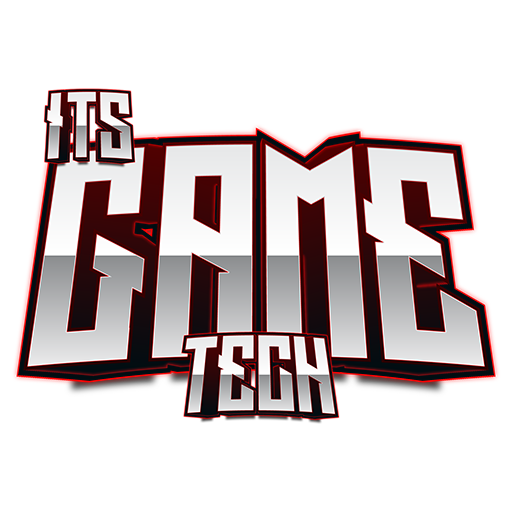How to Generate Safe but Immersive Gaming Space.

Gaming is a vast industry, with various moving pieces, where player’s safety is always at risk, discusses Vitalii Vashchuk, senior director and head of gamming solutions at EPAM system, Inc.
With rising internet services usage, gaming are now mostly online, as people using Smartphone can play easily, the industry estimated to increase at a compound annual growth rate of 12.9% and reach USD 583.69 billion by 2030.
Along this, as gaming industry is 1st to adopt the developing of metaverse technology, these technological advancements in AR & VR will give players immersive 3D experiences, and block chain and crypto currencies will let them engage in Web3 economy as well.
Being 2.9 billion gamers in the world, the gaming community has never been more connected.
Here, the most difficult task the gaming developer and companies facing is the safety of its ecosystem, its ecosystem is based on massive and ever-growing library of user-generated content consisting of inappropriate and dangerous materials.
It takes lots of efforts to navigate this mountain, but gaming firms also have to balance upholding user protection rules by providing engaging, next generation experiences.
Content moderation services, is the only tool that makes it easy for companies to solve these emerging challenges. Developer use these services while implementation, designing a safe strategy, to protect online communities without affecting or restricting any engagement or creativity.
Five Building Blocks of a Good Trust and Safety Platforms:
A content moderation tool that ensures trust and safety for the gaming community and metaverse should be built on various elements, named as data informed decisions, the welfare of moderators, and the thought put of moderated content.
Furthermore, as the tool gather and analyzes data, it should be easy enough to change when introduced to advance and different product policies and content toleration levels.
Here are five main building blocks every good content moderation platform should have:
- Policies and regulations: Every platform will be built upon the foundation of community standards
- Human moderators: As A.I artificial intelligence can provide labeling, verification, and solving edge cases but human creativity and intuition still required for better tasking.
- Automated moderation pipeline: A.I has considerably higher capacity than humans to filter and classify the majority of incoming content, but still need of human moderators are required. Businesses can easily reduce, and in some cases completely eliminate, the amount of hazardous content that humans interact with by using A.I to automate the moderating process.
- Data Analytics: This component includes accuracy and performance measurements, will assists the information at a deeper level.
- System management: A single location where gaming firms may customize the entire system, take control of it, and get operational analytics.
It no doubt is helpful for game developers to know which of these three trust and safety levels they align with, by considering their implementing principal building blocks.
- Starter: At this point, the company has no recognition tools to identify dangerous information and solely use basic human moderation, and as its policies and laws are also very new Users can easily find inappropriate stuff on it.
- Medium: At this stage, the company has basic A.I recognition tools, a certain level of community policies that are enforced, including the availability of mature technological tools.
- Advanced: At this high level, the company likely has its own system and mature polices. Additionally, a team of moderator works with trained AI models to detect and remove objectionable content before the majority of users are made aware of it.
Leveraging AI and Humans in Content Moderation:

As already mentioned, gaming companies are integrating AI-powered automation into their content moderation platform because of the overwhelming amount of user generated content.
But AI alone is not enough; it needs to be used in conjunction with human moderators. A business can employ people to fill in the blanks and carry out manual labeling or to provide the last word in judgments that are unclear if it finds that any of the five building blocks are absent from its platform or if it has other flaws.
It’s obvious; a company at its advance trusts and safety level will be more worried about its employees’ wellbeing and ignore showing them to highly graphic material.
Gaming brands can employ AI solutions to improve metadata, allowing for automatic routing so that the most competent agent can assess questionable content while preventing unwanted exposure to human moderators.
Additionally, in order to support their ethical and responsible operations, gaming companies need to set guidelines and limits around their AI solutions. AI has the potential to violate human rights and reinforce negative bias towards under presented groups if it is not controlled and maintained.
However, biases have way of finding their way into algorithms, even when businesses create AI with the best intentions.
Game developers need to understand that developing ethical AI need continuous testing and observation.
Businesses that use AI-powered moderation technology inside should aim to make it transparent and morally sound, referencing current social policies in the process. For those who must examine the solutions on the market, make sure to carefully consider the developer and their principles.
A Platform Ready for the Future

With the ongoing development of the metaverse, community connections will take on a new dimension that integrates the virtual and real world, extending beyond pure game play into web3 interactions.
The particular problem faced by game creators is allowing online communities to communicate and engage with user-generated content while protecting them from harmful information.
Maintaining a secure ecosystem is not just a matter of amusement but also moral and legal obligations, business can create a successful content moderation platform that is appropriate for the gaming environment of the future by combining responsible AI with community rules.


